Iran-Backed Houthis Of Yemen Vow Not To Let Red Sea Turn Into ‘Israeli Lake’
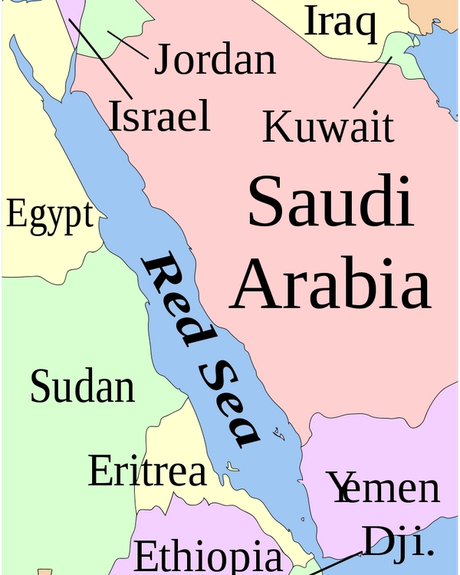
The prime minister of the Houthi-controlled administration in Yemen says Sana’a will not allow the Red Sea to become an “Israeli lake”, IRGC affiliated Fars news reported.

The prime minister of the Houthi-controlled administration in Yemen says Sana’a will not allow the Red Sea to become an “Israeli lake”, IRGC affiliated Fars news reported.
The premier of the so-called Yemen’s National Salvation Government, Abdel-Aziz bin Habtour, said in capital Sana'a on Monday that Yemen has the final say in the Bab al-Mandab strait and will “preserve the Arab identity of the Red Sea in the face of the US conspiracy to turn it into a Zionist lake."
"Bab al-Mandab is an international waterway, but it is part of Yemeni territory," he emphasized.
The Bab-el-Mandeb strait – located between Yemen on the Arabian Peninsula, and Djibouti and Eritrea in the Horn of Africa -- connects the Red Sea to the Gulf of Aden and acts as a strategic link between the Indian Ocean and the Mediterranean Sea via the Red Sea and the Suez Canal.
Echoing Iran’s position regarding US President Joe Biden’s tour of the Middle East and the summit of regional Arab countries in Jeddah, he said that during the visit Washington and Riyadh tried to cover up the reality of the Saudi-led “brutal aggression, the massacres, crimes and violations” they committed against Yemen, by portraying the crisis as just an internal conflict.
The Houthis receives military and political support from Iran in their conflict with other Yemenis backed who are backed by a Saudi-led coalition since 2014. Iran has been sharing its missile and drone technology with Yemen’s Houthis and has also supplied other proxy forces, such as the Lebanese Hezbollah and Iraqi Shiite militias.
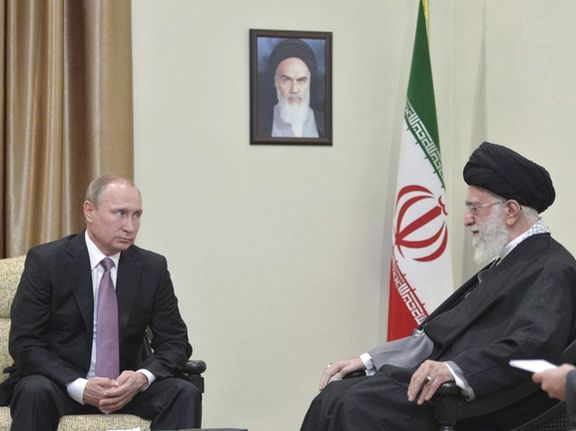
President Vladimir Putin’s trip to Tehran Tuesday seems set by the Kremlin to emphasize Russia’s continuing role in the Middle East despite the Ukraine crisis.
Yuri Ushakov, foreign policy advisor to the Russian president, told reporters in Moscow Monday that a planned meeting with Ali Khamenei, Iran’s supreme leader, was “very important” and would reflect a “trusting dialogue…on the most important issues on the bilateral and international agenda.”
Putin is also expected to meet in Tehran with visiting Turkish president Recep Tayyip Erdogan, partly to follow up trilateral discussions with Ukraine over establishing a corridor through Turkey for the export of Ukrainian grain, a move that may be soon endorsed by the United Nations. At the same time, Moscow is well aware that its own grain exports are a potential sweetener, with Dmitry Patrushev suggesting in June Russia would send supplies to “countries that are friendly to us”.
While Erdogan, despite sending arms to Ukraine, has acted as a mediator between the warring neighbors, he also wants to liaise with both Russia and Iran over Syria, where Ankara is considering stepping up an armed intervention, aimed partly in support of Syrian rebels and partly against Kurdish forces allied with Kurdish rebels in Turkey. Iran opposes the Turkish presence, which is tolerated by both Russia and the US.

While Putin has left Russia only once since the Ukraine crisis erupted in February – travelling in June to Tajikistan and for the Sixth Caspian Summit in Turkmenistan – his trip to Iran is seen as an important chance to assert Russia’s continuing role in the Middle East immediately after the visit of United States President Joe Biden to Israel and Saudi Arabia, which concluded Saturday evening after Biden told the summit of nine Arab states he would not leave in the Middle East “a vacuum to be filled by China, Russia or Iran.”
Moscow’s regional leverage
Russia wants to maintain leverage gained from years of nuanced military and diplomatic regional efforts – including its 2015 military onslaught in Syria that tipped war in favor of President Bashar al-Assad, its intelligence sharing and political ties with Israel, its coordination with Saudi Arabia of global oil supplies through Opec+, and its diplomatic cooperation with Iran.
The Iran-Russia relationship has been well discussed in both Tehran, where some politicians regularly criticize Moscow’s continuing role in Iran’s nuclear talks with world powers, and in Washington. US officials have lately alleged that Russian officers visited Iran in June and July to look into possibilities for deploying Iranian-made attack drones for the Ukraine war. President Ebrahim Raisi met Putin in Moscow in January, and again at the Caspian Summit in June, when the Iranian president joined the leaders of Russia, Turkmenistan, Kazakhstan, and Azerbaijan, and expressed a desire to build economic ties.
But many analysts argue that Russia and Iran are far from partners, whether in arms or business. Bilateral trade rose to $4 billion in 2021, but this is far less that, for example, Russia’s trade with Turkey at $33 billion, while Moscow’s exports to Iran are mainly foodstuffs, which are less vulnerable to US third-party sanctions than other sectors.
And while Tehran has been benefiting from rising oil prices, its sales to China, which make up most of its exports dues to US sanctions, have been hampered by Moscow selling to Beijing at a discount after being shut out of much of western Europe due to the Ukraine invasion.

Iran has never demanded the removal of IRGC from a US terrorism list for a nuclear deal; a media represntative for Tehran has reportedly told Russia’s Sputnik.
Mohammad Marandi, who was a member of Tehran’s team in the Vienna nuclear talks to revive the 2015 nuclear deal known as JCPOA, was quoted by Rouydad24 website in Iran as having told Sputnik, that reports by Western media about the demand to remove the Revolutionary Guard from the US list of Foreign Terrorist Organization (FTO) is not true.
“This issue was never a pre-condition…What has been on the table is the [US] track record in partial implementation of the JCPOA and its ultimate violation. Iran deems this unacceptable and Washington’s unwillingness to remove sanctions,” Marandi was quoted as saying.
The Sputnik website is not accessible in most countries after the invasion of Ukraine and Iran International cannot verify Rouydad24’s exact quotations, but a website in Iran would hardly dare to be inaccurate in reflecting the words of an important official.
Meanwhile, Mohammad Kowsari, an IRGC officer and an influential member of parliament said Monday that, “It would not be acceptable at all that the Guards…remain under sanctions.” He also demanded “guarantees” that “all sanctions be removed” and rejected any notion of a selective approach in the matter.
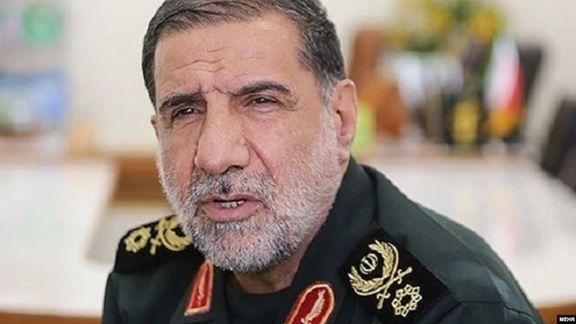
Kowsari went on to accuse the US of using the issue of IRGC’s terror designation to refuse providing “permanent” guarantees to Iran. “At least there should be guarantees for the two remaining years of the Biden administration,” he said.
After the Vienna talks stalled in March, reports emerged that Tehran was demanding the delisting of the IRGC and Washington’s position was that the issue was not related to nuclear sanctions, which it had agreed to suspend or remove.
Lately, the issue of guarantees is again being raised by Iran, which if applied to assurances for full economic and financial access by entities sanctioned for terrorism or human rights violations, basically means the removal of all sanctions.
US administration officials and President Joe Biden himself have said that a final offer has been made to Iran months ago and it is up to them to decide. At the same time, during his trip to the Middle East last week Biden pledged bot with Israel and Saudi Arabia not to allow Iran to become a nuclear weapons state.
Marandi went on to argue that the United States is in not “in a strong position to act against Iran,” and the best option for them is to come to an agreement to unlock Iran’s oil flow, which they need.
The US-born Iranian official who plays a role in reflecting Iran’s positions in English language with international media, also spoke about reports about the creation of an air-defense alliance between Israel and Arab states concerned about Iranian missile and drone threats. He reportedly told Sputnik that even if such a system is set up it cannot pose a challenge for Iran.
“There is no regional country that can be considered Iran’s rival. Our only rival is America. Israel and Saudi Arabia are small and weak. Iran is the most militarily advanced country in West Asia,” Marandi claimed.
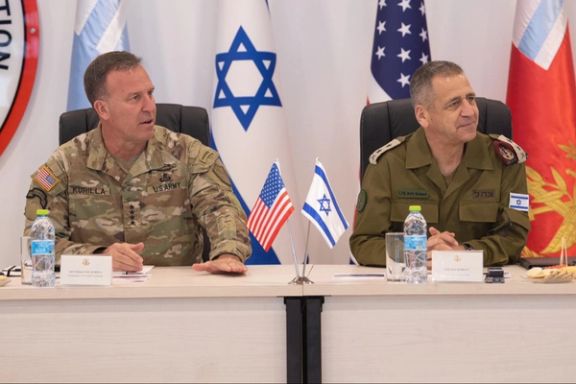
The US military commander in the Middle East met Sunday with the commander of the Israeli Defense Force to discuss the integrated air and missile defense system.
CENTCOM Commander General Michael Kurilla and IDF Chief of Staff Lt General Aviv Kochavi discussed “he importance of an integrated air and missile defense system, as well as the continued need for strong regional security cooperation.”
According to a statement by CENTCOM Public Affairs, Kurilla told Kochavi “As President Biden said earlier this week in Israel, and Secretary of Defense Lloyd Austin echoed, the United States’ commitment to Israel remains ironclad. Regional security remains paramount for both CENTCOM and the IDF.”
Israel's Minister of Defense Benny Gantz, who also met with Kurilla during his visit to Jerusalem and Tel Aviv, boasted about “the unparalleled defense relations between Israel and the US,” highlighting CENTCOM’s important role in maintaining regional peace and stability.
In a speech at a ceremony marking the change of the military’s Home Front Command chief, Kohavi said Sunday that it is a “moral obligation and a national security order” to prepare a military response against Iran’s nuclear program.
“Preparing the home front for war is a task that must be accelerated in the coming years, especially in light of the possibility that we will be required to act against the nuclear threat. The IDF continues to prepare vigorously for an attack on Iran,” he said.
Tehran has repeatedly warned regional Arab countries over the plan to launch the air defense system with the United States and Israel to confront Iran's missiles and drones.
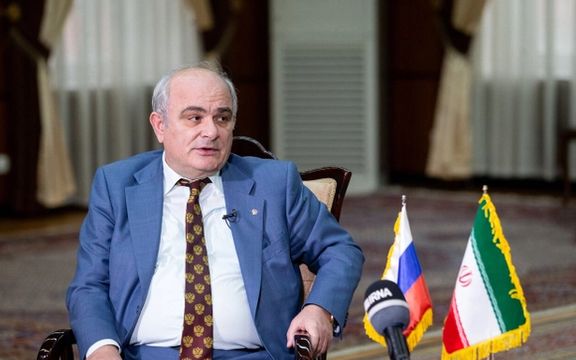
Russia's ambassador To Tehran has again made headlines for all the wrong reasons as Ali Khamenei is expecting a meeting with Russian leader Vladimir Putin soon.
Iranian media have often perceived Levan Dzhagaryan's (Jagarian) controversial behavior as intervention in Iran's internal affairs or as flat insults although he does not seem to be bothered by the accusations. On social media, however, and recently in Tehran media Iranians have been demanding an answer to the ambassador's outrageous and provocative remarks.
Khabar Online, a moderate conservative news outlet in Tehran asked on Sunday, July 17, "Where are the government and the foreign ministry" after Dzhagariantold Sharq newspaper in Tehran the day before that "We have always been on Iran's side, but the West want to bring their absurd values such as homosexuality and other dirty things to Iran but we object to that!"
Many Iranians on social media reminded the ambassador that Russia is a large producer of pornography in the world.
The ambassador also said in the same interview: "There are things that I don’t want to reveal, but what is clear is that Iran owes us hundreds of millions of euros and doesn’t pay." Some Iranians on social media perceived this as a prelude to plundering Iran's resources as the alleged debt is about decades of Russia's partnership with the Islamic Republic in constructing the Bushehr nuclear power plant that contributes little to Iran’s electricity.
In an earlier remark, Dzhagaryan had said that "hijab and the lack of alcoholic drinks in Iran prevent Russian tourists from coming to Iran." His remarks which contained criticism of the Islamic Republic's underlying values, was harshly criticized by former Iranian lawmaker Ali Motahari.
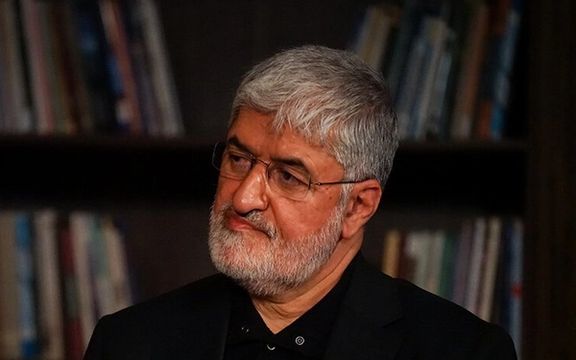
At the same time, Motahari and many other Iranians on social media criticized the Raisi administration's silence in the face of Dzhagaryan's comments. The ambassador's earlier remarks particularly angered Iranian journalists when he told them not to call Russia's war against Ukraine an "invasion." The journalists charged that the Raisi administration does not object to Dzhagaryan because it does not want to annoy Russia which is Tehran's close ally.
In another development, when President Biden and the first lady congratulated Iranians on Nowruz, Dzhagarayan dismissed Biden's gesture as "hypocrisy" and reminded that Biden has imposed sanctions on Iran.
These and several other remarks and actions by the ambassador have most certainly not been constructive while at a higher level, Iran and Russia do a lot to pretend to be allies against the United States and Europe.
The Islamic Republic has gone out of its way to give Russians the authority to intervene during Iran's negotiations with the West to revive the 2015 nuclear deal.
Although Putin's visit to Tehran is officially within the frameworks of the Astana Peace Process for Syria, the initiative is long dead and Putin, Turkey's Recep Tayyip Erdogan and Iran's Khamenei are part of the problem in the Syrian civil war rather than being able to offer solutions.
Putin is most likely visiting Iran to personally convey his messages to Khamenei who never travels abroad and have a meeting with Erdogan to sort out problems about seizing Russian food cargos going through the Bosporus, based on arrangements with NATO.
Meanwhile, Eurasia expert Mahmoud Shouri told reporters in Tehran that Cold War geopolitical demarcations are being revived. He said the meeting in Tehran could be part of the initiatives to forge new alliances. He added in view of the fact that Biden did not gain much during his regional tour, Russia must be thinking of leaving the void Washington has left behind in the region.
What Khamenei can get out of the meeting is pretending that new alliances in the Middle East have not totally isolated him as he can at least host Putin.
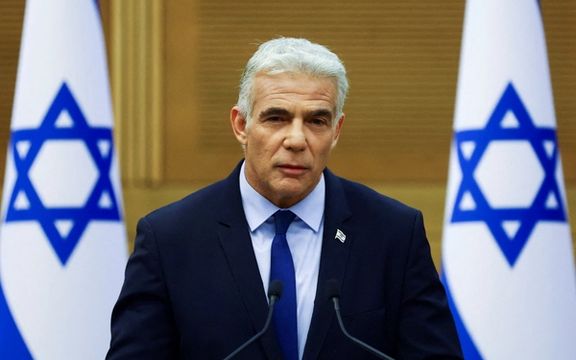
Israeli Prime Minister Yair Lapid says US and Israel do not “necessarily agree” over a credible military option against Iran but Israel maintains complete freedom to act against Tehran.
At the weekly cabinet meeting on Sunday, Lapid said, “We came and asked to introduce a credible military threat during President Biden’s visit. We want the basis [for world power’s negotiations with Iran] to be a credible military threat. We didn’t necessarily agree on this with the Americans at the present time.”
He said he “made it clear to the president and his team that Israel opposes the nuclear deal and maintains complete freedom to act, diplomatically and operationally, in the face of the Iranian nuclear program.”
Lapid also described Biden’s trip to Israel “a historic visit, with achievements in diplomacy, security and the economy.”
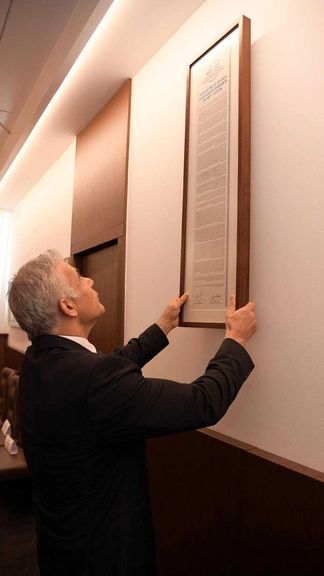
Lapid’s office also issued a photo of him hanging up the so-called Jerusalem Declaration -- signed by Lapid and Biden in which Washington committed to “use all elements of its national power” to ensure Iran never acquires a nuclear weapon -- in the cabinet meeting room in Jerusalem. Lapid said he was hanging the statement “in the place intended for historical declarations.”
Washington pledged further “defense assistance” on top of the $38 billion 10-year Memorandum of Understanding in 2016 under President Barack Obama and the $1-billion assistance after the 2021 Israeli-Palestinian violence centered on Gaza.